Multi-million-dollar settlement talks prove LRT secrecy still a concern
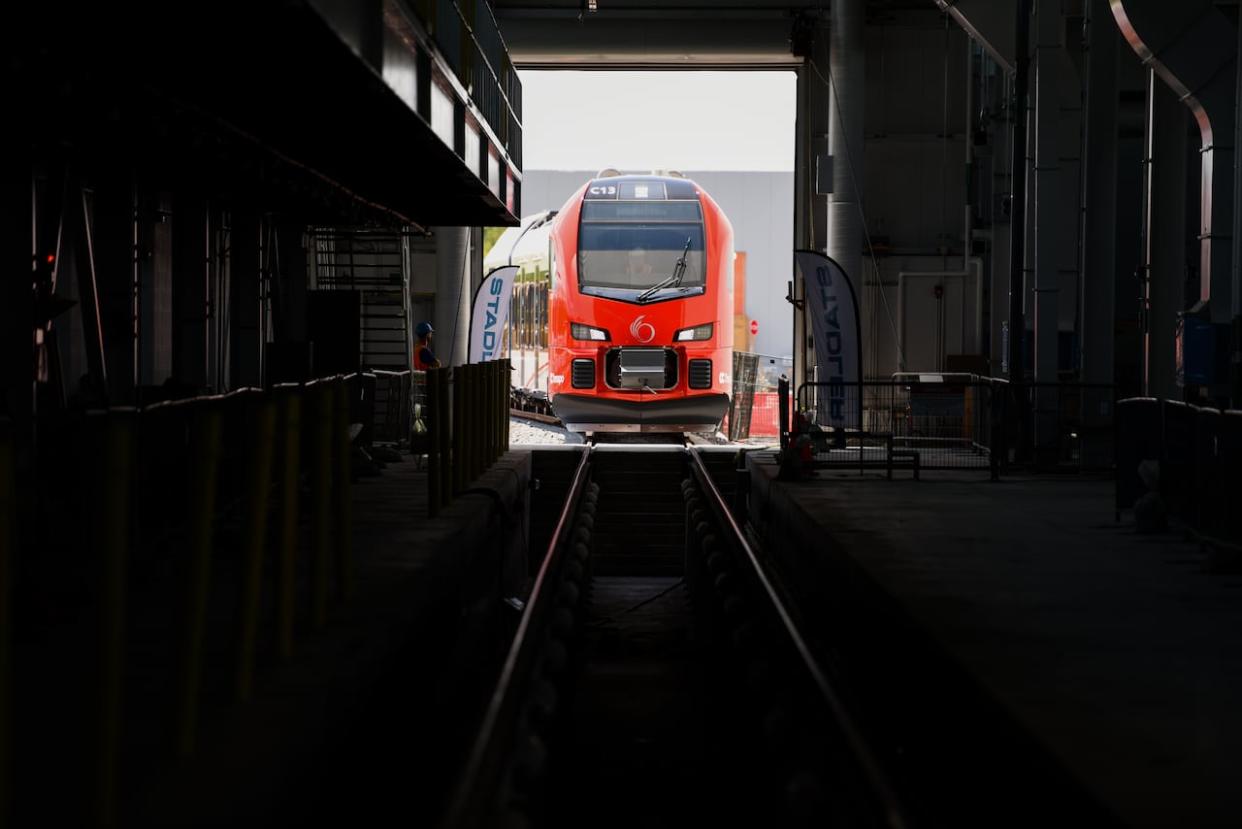
Ottawa's latest light rail transit legal woes are highlighting an issue that's been a concern since before the troubled system got rolling: transparency.
From questions about the bidding process to a confidential deal giving builders millions of dollars in backpay, taxpayers remain in the dark about many of the city's financial entanglements.
The legal secrecy is far from unusual, but with so many ongoing problems many residents, taxpayers and riders are demanding more information.
This next iteration of settlement talks, worth what sources with knowledge of the claims say amounts to tens or hundreds of millions of dollars, is even more opaque, with the city declining to even confirm which companies are asking for money.
After nearly five and a half hours of debate spread across two council meetings, councillors carried a motion late last month to instruct the city manager to carry out these talks. No one dissented nor asked for a recorded vote.
But that sign of unity came after a debate on transparency behind closed doors, sources told CBC, with one saying every single person involved has concerns about how much information can be shared.
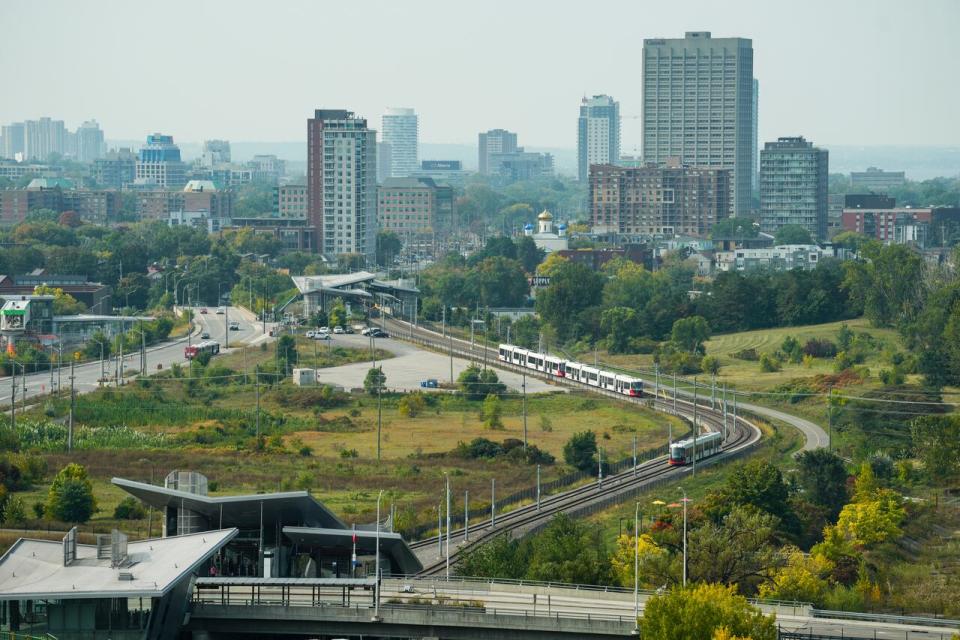
The cost to build extensive infrastructure ballooned during the pandemic, leaving cities and contractors to sort out who's responsible for what. (Sean Kilpatrick/The Canadian Press)
Pandemic delays part of claims
Mayor Mark Sutcliffe did provide some details, including that claims stem from the next phase of light rail construction. That means the eastern and western extensions of the Confederation line, and the newly expanded north-south Trillium line.
He blamed pandemic-related delays, though sources suggest more is at play.
"These are not unusual. They're common for infrastructure projects. There are some that have been settled and been talked about publicly. There are others that are still in process," said Sutcliffe.
"There's some that have been settled and we haven't heard about them because they're confidential."
Matti Siemiatycki, director of the University of Toronto's infrastructure institute, said cost escalation on major projects has been "rampant" since 2020, sometimes inflating budgets by 40 per cent.
"This is a massive increase when you're talking about billion-dollar projects," he said. "And in many cases the fallout is now working its way through the system, and there are disputes that need to be settled related to who's going to pay."
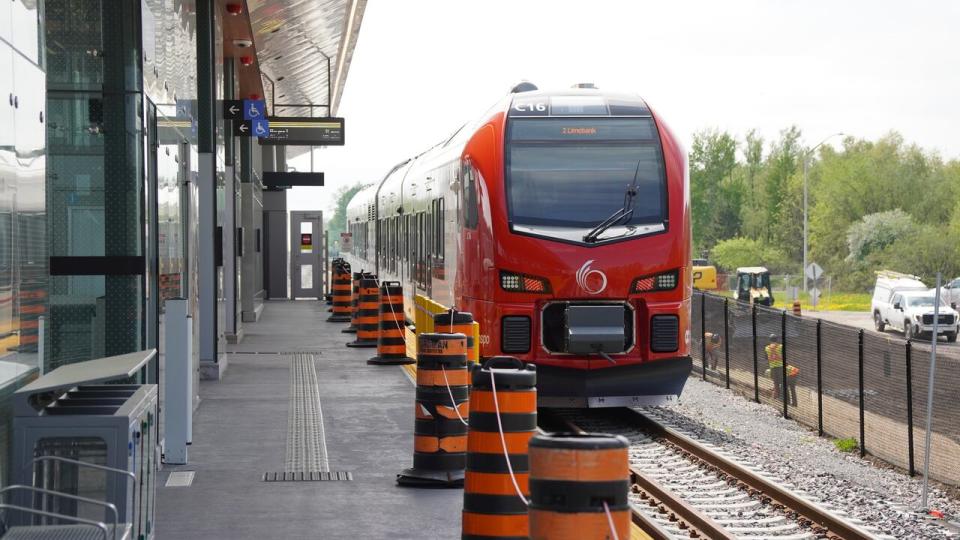
A Stadler FLIRT train arrives at South Keys station during ongoing training and testing for Ottawa's extended north-south Trillium Line. There's still no word on when it will open. (Patrick Louiseize/CBC)
The builders argue governments placed restrictions on the work because of COVID-19 policies, which affected their progress in ways they could not have predicted when signing a contract, he explained.
When councillors met in private, Siemiatycki said lawyers were likely explaining ways to determine what's a pandemic-related expense and how to equitably split the financial hit among the public-private partnership.
A legal lesson from the GTA
To see Ottawa's legal future, we might only need to look as far as the Greater Toronto Area.
The Eglinton Crosstown project has striking similarities to Ottawa's LRT, with the public inquiry into this city's transit woes pointing to contractual elements, and even the key players themselves.
Just like in Ottawa, extensive delays have led Metrolinx to stop issuing intended start dates, and earned the project its fair share of criticism over transparency issues.
But when Metrolinx and Infrastructure Ontario faced a legal challenge from P3 contractor Crosslinx, they went to court — and lost.
A superior court judge would not stay the case, arguing that the contractors could not have foreseen and accepted pandemic risks, and need not bear the irreparable harm that could come from delaying a decision until the project is done.
The public partners vowed to fight against the case's "broad repercussions," and announced about half a year later that they'd reached a settlement with Crosslinx worth $325 million.
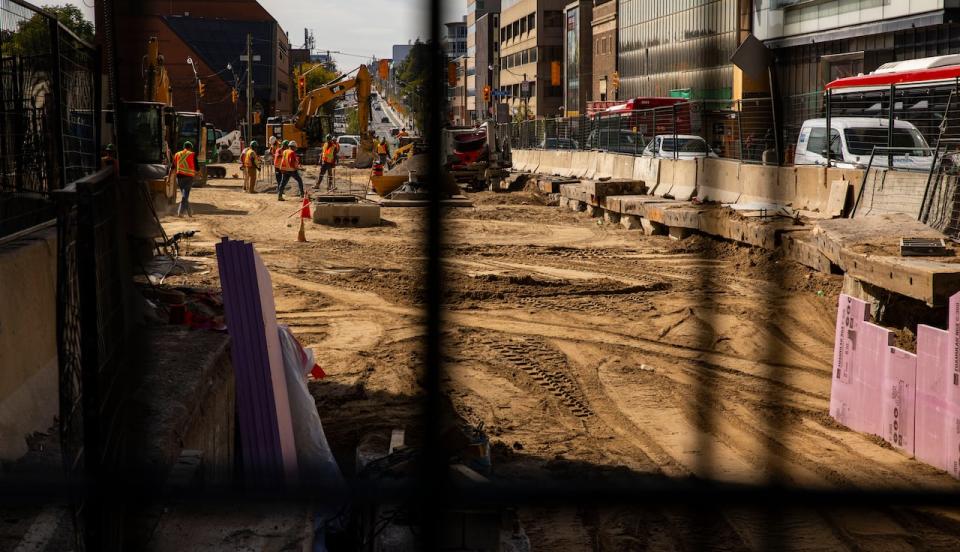
Pandemic-era delays on the Eglinton Crosstown LRT project sparked a legal decision that may be affecting how Ottawa faces its own claims. (Michael Wilson/CBC)
'Bloom off the rose' on P3s, says expert
Siemiatycki said this situation has laid bare the flaws in P3s, which has long been advertised to taxpayers as a way to finance massive projects without cities taking on a huge financial risk.
"Ultimately that risk transferred on paper is not necessarily risk transferred in practice, and on these big projects the contractor can only bear so much risk," he said.
"The public-private partnership model, certainly in Ontario, the bloom is off the rose on that when it comes to public transit."
In particular, governments are moving away from fully bundled construction and maintenance deals, which tie them to contractors for decades after new lines are built, he said.
That would have removed one of the more prickly aspects of Ottawa's ongoing LRT issues: the need to maintain trust with contractors who they must continue working with while trying to solve disputes.
Preserving relationships
In Ottawa many of the city's private partners are involved in multiple major projects, a situation Siemiatycki says is common across the construction industry.
For example, AtkinsRéalis, formerly known as SNC-Lavalin, fhas a 40 per cent stake in Stage 1 builder Rideau Transit Group and a 25 per cent stake in Crosslinx.
It also won the Trillium Line contract through its subsidiary TransitNext.
Councillors first discussed a claim from TransitNext against the city last year, when it was brought up through an independent review of risks associated with the line.
The February 2023 report urged the city to quickly resolve the issue, warning that "due to the claim, transparent communication between both parties is reduced which leads to, possibly, a lack of trust and, potentially, an incorrect vision of the actual project progress by the City."
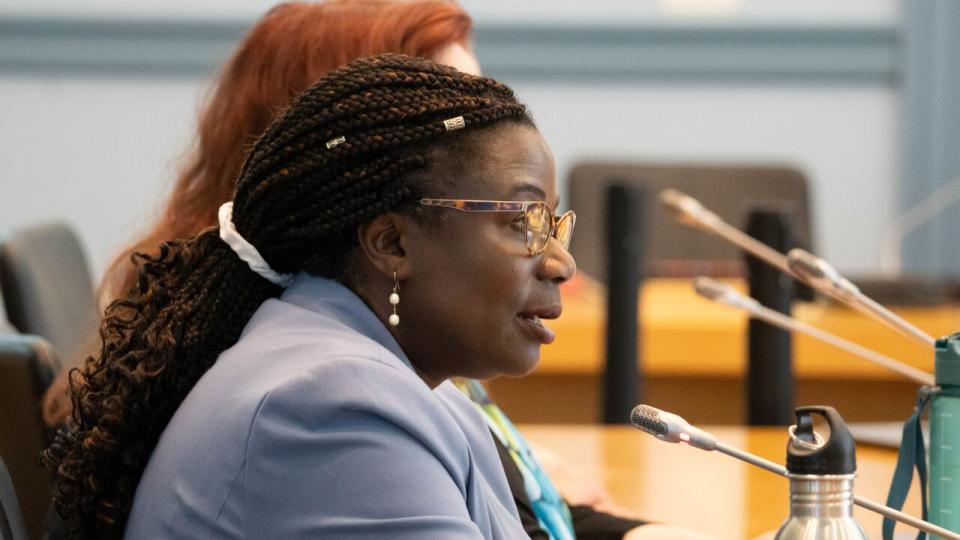
Renée Amilcar, general manager of OC Transpo, has said the city's relationships with its contractors remain strong. (Jean Delisle/CBC)
With claim ongoing, Trillium Line remains stalled
Renée Amilcar, general manager of OC Transpo, assured transit commissioners that informal discussions were underway, with the goal of maintaining a "very good relationship."
At the time, the line was set to open that fall.
City staff no longer provide launch timelines, but told CBC on Friday that teams are still working on "testing, training and construction," and would provide more details as the city approaches the start of a 21-day trial run.
While the city has not officially confirmed this as one of the active claims, CBC confirmed that detail with sources who are unable to speak publicly.
AtkinsRéalis is also fighting its own legal challenges from subcontractors who allege they're owed money for track and road work.

Prime Minister Justin Trudeau, right, greets Ottawa Mayor Mark Sutcliffe as he attends a meeting of the Federation of Canadian Municipalities in Calgary last month. Sutcliffe has been called on to look for funding from the provincial and federal governments. (Jeff McIntosh/The Canadian Press)
What's next?
As the city works on a potentially costly settlement, it continues to struggle with both the financial viability of providing public transit, and the need to find a sustainable solution for ongoing technical problems that caused delays, derailments and an erosion of public trust.
The city told CBC it met with its partners earlier this month to discuss ways to solve a bearing issue that caused a Confederation Line derailment nearly three years ago, but would not share details.
As councillors gather Wednesday for their final meeting before a summer break, they are set to get yet another closed-door legal briefing on the first LRT phase.
What will be discussed? The city won't say, and possibly never will.


